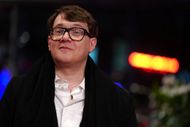Russia-born filmmaker Ilya Khrzhanovsky is no stranger to polarizing reactions. His DAU art project has been controversial since its conception and the subsequent release of the first film in 2019. However, before that, he experienced intense reactions to 4, his debut film, which was praised at Rotterdam but failed at the Venice Film Festival.
“In Venice, when I showed the movie, it was a real fail. Most of the audience left. — It was a kind of shock, because I was sure I had done something unique, great, and now all the world would celebrate it. I think 70 percent of the public left – at least. I think there were supposed to be three screenings, and they canceled one,” said the director, as per The Hollywood Reporter.
Ilya Khrzhanovsky spoke about it at his masterclass during this year's Sarajevo Film Festival, where he was being awarded the Honorary Heart of Sarajevo. He also reflected on how 4, which appalled the Venice audience, did wonders at the Dutch film festival. While addressing the glorious reception at Rotterdam, the director said,
"Everything was opposite to Venice in Rotterdam. It was a real success. All the screenings were sold out. There were extra screenings. … And then I just started to get prizes. It was a good lesson that festival success and everything are very relative.”
In the masterclass, he also addressed a few more topics related to art and creativity while speaking about his past work, including the expansive DAU project, which was reportedly banned in Russia.
Ilya Khrzhanovsky talks about the DAU project, considered to be a "Soviet Truman Show"

The Russia-born director began working on the said project for over 15 years. It was initially said to be a biographical work that would center around Nobel prize-winning Soviet physicist Lev Landau. However, over time, it evolved into an art project where over 352,000 non-professional actors were brought in to live in character for over three years.
“For almost three years, people lived and worked there. If you decided to go there, you would probably keep your name and your profession, but your biography would go back in time for like 50, 60 years,” said Ilya Khrzhanovsky, as per THR.
Regardless of its creative merit, the project became the centre of controversy for potentially recording every conversation between its cast members, thus likening it to a "Soviet Truman Show." During this time, Ilya Khrzhanovsky was also accused of harassment and of creating an oppressive environment on set, which the director refuted, as per THR.
Despite those controversies, the festival decided to honor Ilya Khrzhanovsky to look at his work "from an artistic perspective." Speaking about this topic, festival director Jovan Marjanovic said,
“We are aware of how controversial [the decision] can be, and we’re not shying away from this. This is definitely a discussion we’re having. I think it’s something to be discussed, and the festival can be a platform for this discussion — how far things can be pushed to make films,” said Marjanovic, as per Variety.
Eventually, at the festival, Ilya Khrzhanovsky spoke about the project, including a decision to cast criminals as judges.
“In Soviet courts, actually in Russian courts as well as we can see, all the decisions were made before the [court] process started. So, I decided to invite people who know a lot about the court: criminals, to play judges. They are criminals," said Ilya Khrzhanovsky.
He further spoke while showing some on-set photographs of these criminals:
"This guy, for example, his nickname is butcher. For three hours of material, all the dialogues were improvised, except that we knew what the results should be, what kind of decision they would make.”
Love movies? Try our Box Office Game and Movie Grid Game to test your film knowledge and have some fun!
